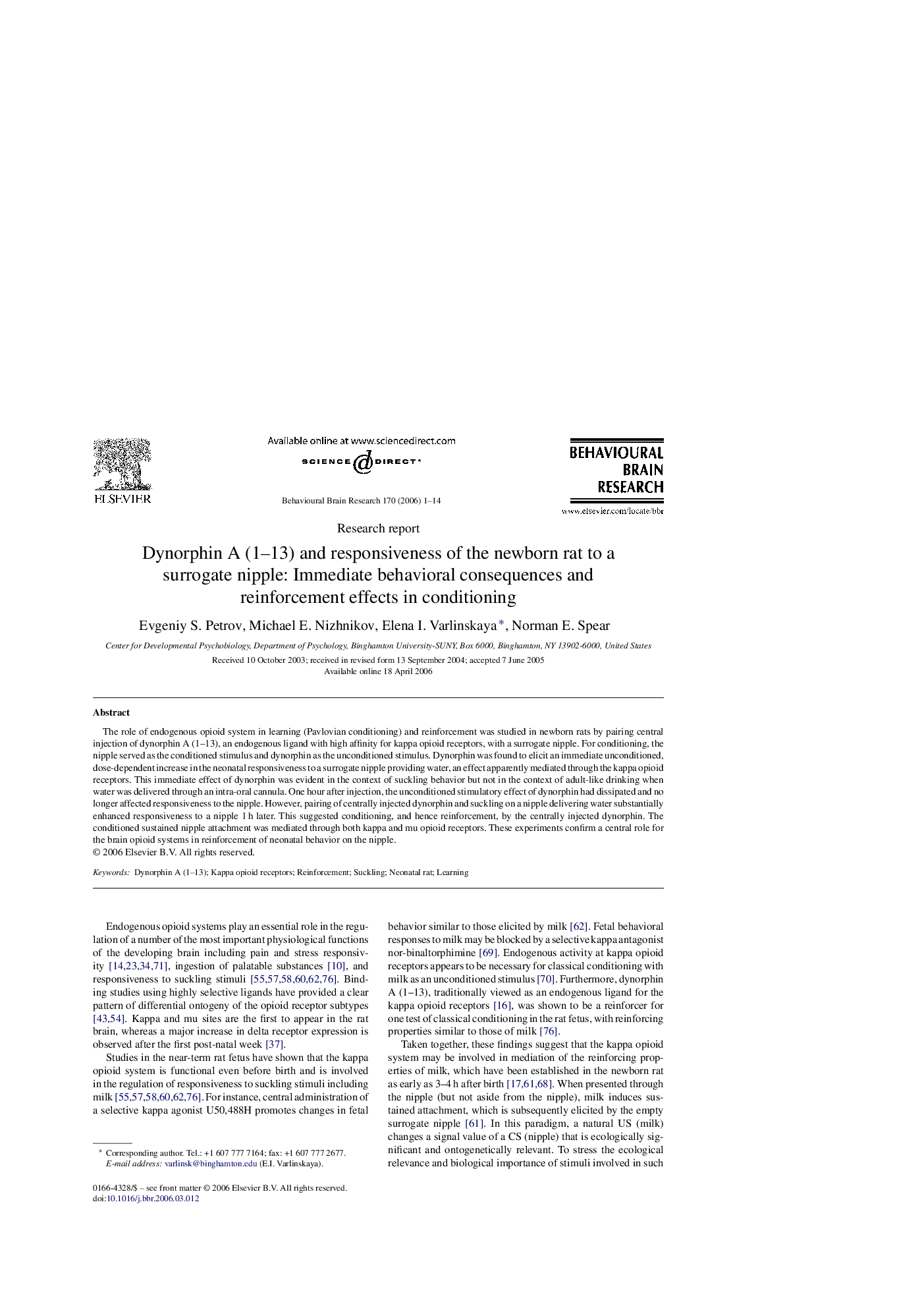| Article ID | Journal | Published Year | Pages | File Type |
|---|---|---|---|---|
| 4316086 | Behavioural Brain Research | 2006 | 14 Pages |
The role of endogenous opioid system in learning (Pavlovian conditioning) and reinforcement was studied in newborn rats by pairing central injection of dynorphin A (1–13), an endogenous ligand with high affinity for kappa opioid receptors, with a surrogate nipple. For conditioning, the nipple served as the conditioned stimulus and dynorphin as the unconditioned stimulus. Dynorphin was found to elicit an immediate unconditioned, dose-dependent increase in the neonatal responsiveness to a surrogate nipple providing water, an effect apparently mediated through the kappa opioid receptors. This immediate effect of dynorphin was evident in the context of suckling behavior but not in the context of adult-like drinking when water was delivered through an intra-oral cannula. One hour after injection, the unconditioned stimulatory effect of dynorphin had dissipated and no longer affected responsiveness to the nipple. However, pairing of centrally injected dynorphin and suckling on a nipple delivering water substantially enhanced responsiveness to a nipple 1 h later. This suggested conditioning, and hence reinforcement, by the centrally injected dynorphin. The conditioned sustained nipple attachment was mediated through both kappa and mu opioid receptors. These experiments confirm a central role for the brain opioid systems in reinforcement of neonatal behavior on the nipple.
